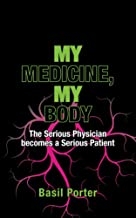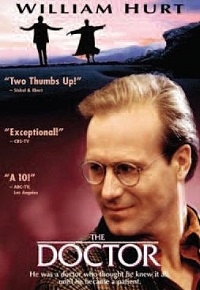My Medicine, My Body - A Book Review
My Medicine, My Body: The Serious Physician becomes a Serious Patient
By Basil Porter
KIP - Kotarim International Publishing, Ltd, 2016.
Amazon: $14.95 softback; Kindle $5
Reviewed by Judy Shapiro
In the 1991 movie The Doctor, William Hurt plays a surgeon who becomes ill and is admitted to a hospital in which he works. As a patient, he has to fill out the same forms again and again, wait for his turn on line to be seen, share a hospital room with an irritating and inquisitive patient and wear a hospital gown, baring the last vestiges of his self-respect.
In his book, My Medicine, My Body, The Serious Physician becomes a Serious Patient, Dr. Basil Porter, a South African pediatrician, academician, teacher and health services manager, living in Israel, records with candor, humility, humor and evolving empathetic awareness what it felt and still feels like to be a doctor one day and a patient the next. In one episode, he is a patient sharing a room with an elderly man he had examined the day before. This man keeps looking at him quizzically, questioning his own sanity, seeing whom he thought was his doctor, now in patient garb. Porter is examined, discharged, and the next day is examining the same elderly man, who by now thinks he must be totally demented.
Dr. Porter had always wanted to write about his experiences as a physician. When reaching his seventh decade, he suddenly saw his own body as a story when he began to have serious personal experiences with his own health. He became acutely aware that the priorities of patient evaluation had changed. Where once the primary tool of the medical practitioner was the narrative of the patient, it was now "predetermined questions entered into a computer, using unintelligible abbreviations". The patient was sent for blood tests or front-line imaging which should provide the diagnosis. The echocardiogram was replacing the stethoscope, and ultrasound and MRI machines the palpating hand.
As a doctor/writer, he understood that his descriptions of his symptoms would be colored and distorted by his knowledge and experience. He was also aware that the doctor as a patient was a lonely role to play; he was expected to be more tolerant of his condition, braver and more knowledgeable about his disease. Unfortunately, he found this not true, especially when his disease was outside his field of expertise. Ultimately, he found that "life depends not so much on what hand you are dealt, but rather what you do with it." He attributes his recovery from his various illnesses to his genes, his surgeons, physicians and the ability to cope via his character
He offers a vignette of himself as a twelve-year-old boy with a serious case of appendicitis which might not have ended well, experiencing intense pain for the first time, and wonder drugs that would allow him to sleep during an operation. Moving on, he describes with humor and pathos, his traumatic years suffering as a teenager from severe acne. As a young doctor, he develops chronic, debilitating low back pain (LB.P.). He reminds sufferers that healers can err, as they are all only human, and ultimately, the sufferer has his destiny in his own hands.
Porter develops liver and gallbladder disease which teaches him, and in turn teaches us, about recognizing symptoms. He suffers from the after effects of a car accident, a parotid tumor, a painful rehabilitation after a train wreck, neuropathic pain which continues to this day, and the price we often pay for aging - hearing and vision deterioration, worsening knee pain due to worn- out cartilage, increasing breathlessness while walking and the progressive deterioration of memory. He also developed and was successfully treated for Chronic Myelocytic Leukemia (CML).
The main message of this book is Porter's reflection on the patient from the perspective of a doctor turned patient. He highlights the life-saving advancement of medical technology and reflects on the loss of empathy and compassion. While he was successfully diagnosed, treated and cured from most of his conditions, it was not without much frustration when seeking medical care. He writes with genuine concern to improve medical education in general and of the importance of the doctor-patient relationship.









Comments